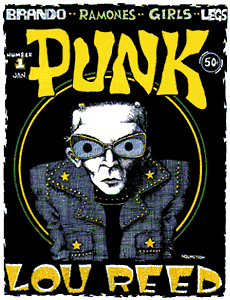 It must be at least three months since anyone’s mentioned punk on this blog, so…
It must be at least three months since anyone’s mentioned punk on this blog, so…
I’ve been reading Please Kill Me, Legs McNeil and Gillian McCain’s ‘oral history of punk’. This quote from Legs, one of Punk magazine’s founders back in 1975 expresses perfectly several ideas dear to our hearts, to do with the critique of identity politics, the majority/minority/minoritarian distinction and the importance of openness.
Gay liberation had really exploded. Homosexual culture had really taken over — Donna Summer, disco, it was so boring. Suddenly in New York, it was cool to be gay, but it just seemed to be about suburbanites who sucked cock and went to discos. I mean, come on, ‘Disco, Disco Duck’? I don’t think so.
So we said, ‘No, being gay doesn’t make you cool. Being cool makes you cool, whether you’re gay or straight.’ People didn’t like that too much. So they called us homophobic. And of course, being the obnoxious people we were, we said, ‘Fuck you, you faggots.’
Mass movements are always so un-hip. That’s what was great about punk. It was an antimovement, because there was knowledge there from the very beginning that with mass appeal comes all those tedious folks who need to be told what to think. Hip can never be a mass movement. And culturally, the gay liberation movement and all the rest of the movements were the beginning of political correctness, which was just fascism to us. Real fascism. More rules.
But as far as us being homophobic, that was ludicrous, because everyone we hung out with was gay. No one had a problem with that, you know, fine, fuck whoever you want. I mean Arturo would regale me with these great sex stories. I’d be going, ‘Wow, what happened then?’
What was great about the scene was that people’s curiosity seemed stronger than their fear. The time was rife with genuine exploration, but not in a trendy mass-movement way. And was always fascinated by how anyone made it through the day, what they really did when the lights were out, to keep their sanity, or lose it.

1 Comment